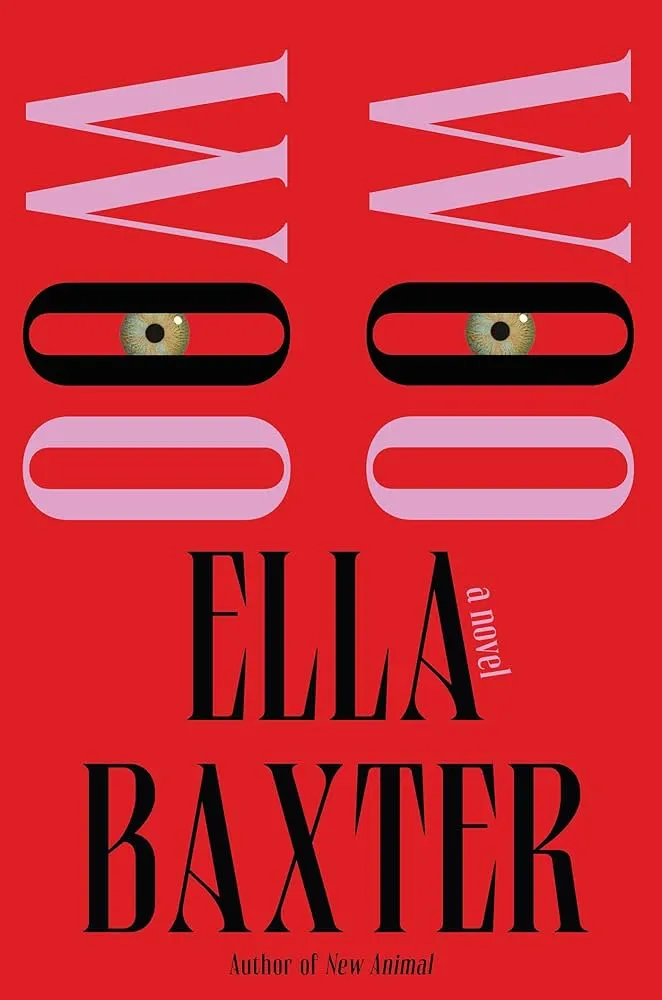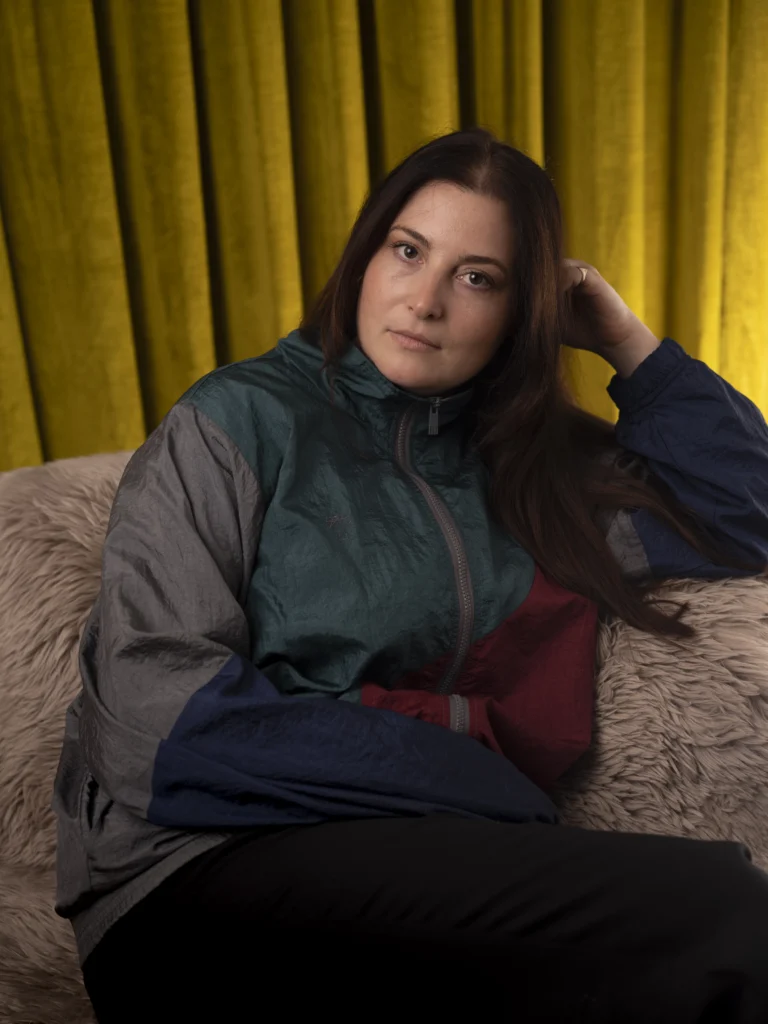
An Interview with Ella Baxter
Words By Ella Baxter, Interviewed by Ainsley Louie-Suntjens
How did the idea for Woo Woo come to you? I mean this with all love, but it is such a deeply strange book, I would love to know how you conceived it.
I began writing Woo Woo while I was being stalked. Initially it was a letter back to my stalker, but after a while I realized a narrative had also emerged, which was to do with art making and womanhood and fury. I began to push the letter into the shape of a novel. I write instinctively and without outline, so it was four years of writing, and then another full year of editing. Woo Woo has been the most rewarding creative project I have ever worked on. I have loved every part of the process, and I can’t say that about anything else I have made.
Woo Woo drew from many places, what were you inspired by as you were writing? Were there any art forms that informed the writing process?
All the artworks mentioned within the book were huge inspirations to me during the writing process. The artwork of Ana Mendieta and Carolee Schneemann was pivotal in understanding my protagonist. If I were ever unsure what she might do or think, I would scroll through their works and the answer would come. Both women were pioneers, and both had a deep, ongoing discourse with their own creativity.
How did you pick the direct references going into the book? What was the process behind selecting each chapter title?
Using the works allowed me to create an atmosphere for each chapter. I used the works that had influenced the writing the most. There were plenty I couldn’t use due to copyright issues. I had a folder on my laptop with all the images and songs in it and I would just stare at them/ listen to them on repeat for many hours. I have been obsessed with every artwork mentioned, either because I love it or because I hate it, or it agitates me. They are all emotional trigger points for me.
Woo Woo is incredibly timely. Was there anything about our current social media microcelebrity, internet-driven cultural landscape that informed the writing of the book?
In a way it is an ode to Julia Fox, and Tumblr, and the memes and vines and get- ready-with-me TikTok compilations and all the intimacy and distance the internet provides us. It is as if Belle Delphine and Tracy Emin had a baby.

What does your writing process look like? Are you a planner, or do you just start writing? Do you have any rituals?
I sit down at the kitchen table with my laptop, will the muse to come to me, then type until I don’t feel emotional discomfort in my body. Then I put my computer away, continue to live a quiet and reasonable life, and begin the process the next day. Sometimes I take six months off to reset where I focus on reading or looking at art. I am a seasonal thinker, I do better and more work during winter. I am useless creatively in summer, there’s too much going on, the garden needs me, I’m busy.
You have published one book, New Animal, before Woo Woo. How has your writing process evolved since then? Has it changed at all?
Yes, I know what to expect. With New Animal I just thought I would write a book, send it into the world and never think of it again. I now know that you wear your work forever. Books are like hats you cannot take off. I’m wearing two currently. I am unsure if I ever want to wear three.
When did you realize you wanted to be a writer? From there, how did you at least initially conceive a plan for a professional career? And did it all go to plan?
I wanted to be an artist, not a writer, but my art was not successful. A gallerist once told me he would be able to sell my sculptures if I changed everything about them. I do love writing, but the job of being a writer is quite isolated. It is a singular existence in many ways and sometimes I miss a more collaborative, creatively experimental approach. Recently, I have been saying I will never write another book again, but my two closest friends reminded me I said this right before I wrote Woo Woo.
What do you think young writers need to know about the publishing industry?
In my experience, the publishing industry is made up of wildly intelligent, highly creative people who are paid very little. Young writers need to know that they, as well as these wildly intelligent people, are working as hard as they can to foster excellent work within a patriarchal and capitalist system that ultimately views art as a commodity.
Do you have any anticipated releases for 2025?
Emotionally, I hope to release all burdens. Professionally, I am focused on writing for television. There are two major projects in the works, but they haven’t been announced publicly yet.